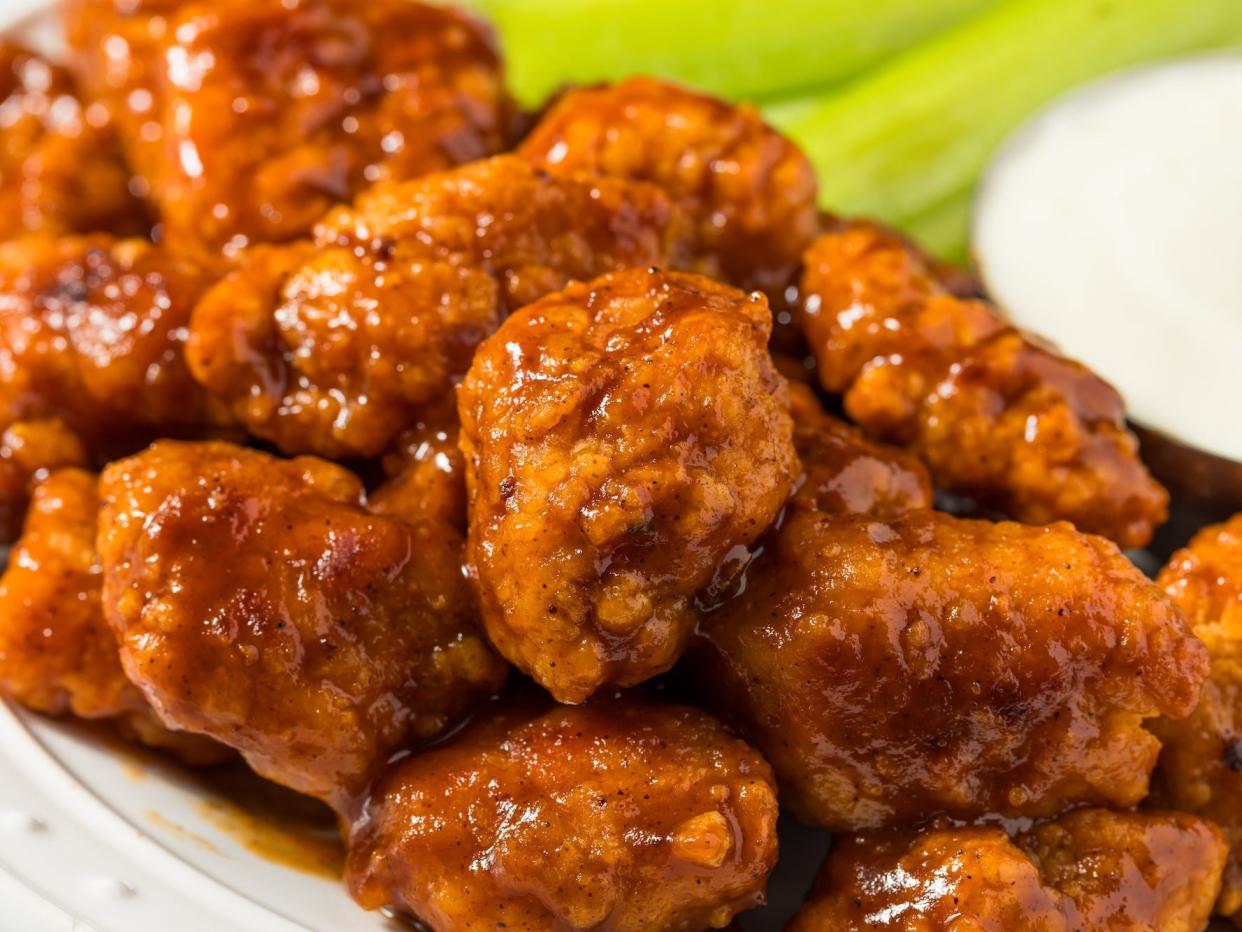Popeyes considered calling its boneless wings 'bites' so that people wouldn't get confused about what they are

Popeyes has expanded its chicken lineup by adding boneless wings — which are actually made from breast meat.
There's "a lot of online chatter around 'what the heck is a boneless wing?,'" Popeyes' US boss said.
Customers who order boneless wings skew slightly younger and are more likely to be female, he said.
Popeyes tried out a number of different names for its boneless wings — including "bites" — over worries that people may struggle to understand what they were.
Jeff Klein, president of Popeyes US and Canada, told Business Insider in an interview that there was "a lot of online chatter around 'what the heck is a boneless wing?'"
"They're not de-boned wings," he said.
Boneless wings are actually made from breaded breast meat but cause confusion among diners who are stumped by the name.
"We've definitely tested a variety of different names," including "bites," Klein said.
Klein noted that calling them wings means that Popeyes can promote its overall wings platform — both bone-in and boneless — in ads and said that the fried-chicken company had been selling more bone-in wings since it started advertising boneless ones "because it's just generating that demand for wings in general."
Popeyes added bone-in wings to its permanent lineup in November.
"Boneless wings were always part of the plan," Klein said, noting that they make up just under 40% of the total wings market.
Boneless wings appeal to a slightly different demographic to bone-in wings, too, he said.
"Boneless wings tend to skew a little bit younger than bone-in," Klein said. "They tend to skew a little bit female relative to bone-in, not drastically, but just a little bit."
Wings customers, in general, tend to be bigger groups of people, often placing orders digitally, he said.
"There's a little bit of seasonality to wings, but not as much as people would think," he added, referring to their popularity as a match-day snack.
Boneless wings are an attractive choice for restaurants because breast meat is more abundant and therefore generally cheaper to buy in than wings.
But Popeyes' launch of boneless wings "wasn't supply chain-motivated at all," Klein said. "There can be volatility in the bone-in wings pricing at times, but not a current concern for us. It was more around variety."
Because they're cheaper to buy, wing shops sometimes sell boneless wings for less. Wingstop's prices vary by location, but some of its restaurants charge more for "classic" wings than boneless, while others charge the same for both types.
Popeyes sells its boneless and bone-in wings at the same price point, Klein said. At the locations BI looked at, the wings were priced at either $5.99 or $6.99 for a six-piece portion.
Popeyes sells its boneless wings in the same flavors as bone-in ones, apart bone-in wings also come in a ghost pepper flavor and boneless wings have the option of classic. The bone-in wings have a spicier base, Klein said.
Chicken is rising in popularity as a protein choice. At McDonald's, it's now more popular than beef, generating $25 billion in annual sales for the burger giant.
Young people love chicken, pushing US restaurant chains to launch more chicken products.
"They overwhelmingly order chicken," Laura Dickey, CEO of Dickey's Barbecue Pit, previously told BI.
Read the original article on Business Insider

